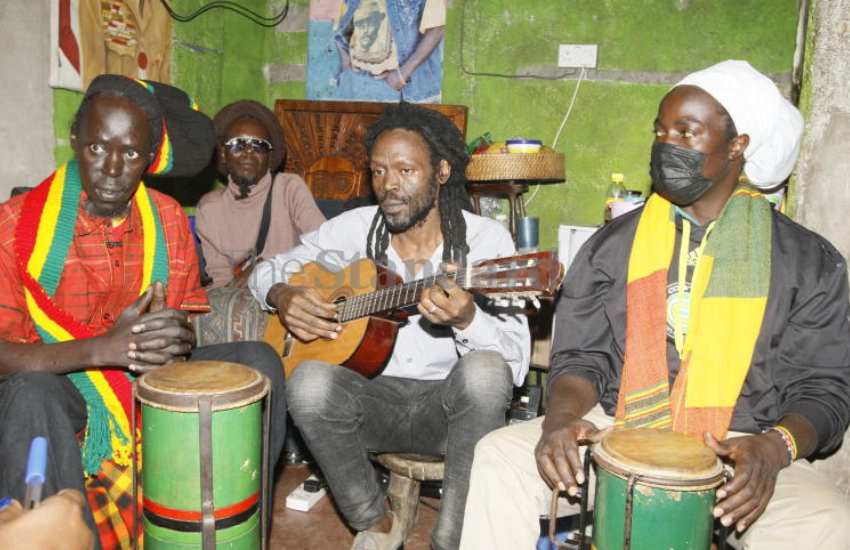
The smell of burning incense wafts through a tiny room where a group of Rastafarians is meeting. The distinctive smell of roasted herbs hangs heavy in the air. One of them strums a guitar that is placed delicately on his chest. His eyes are closed. He starts singing and the rest join in. They beat drums and shake their dreadlocks. For a moment, they are lost in their own world. A world they say they love so much, but many people have not made an attempt to understand.
The group members are at their centre in Kibra, Nairobi, where they meet regularly to talk about their religion. They call it the “Rastafari Kenyan Embassy”. They speak pidgin that is characteristic of people in the Caribbean. It is in the same room, they say, that they have got many a beating from police officers who break in and harass them for having illegal gatherings. Outside, a team of police officers has a lorry parked nearby.